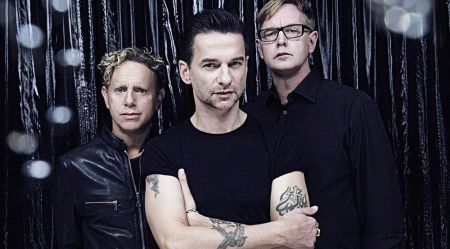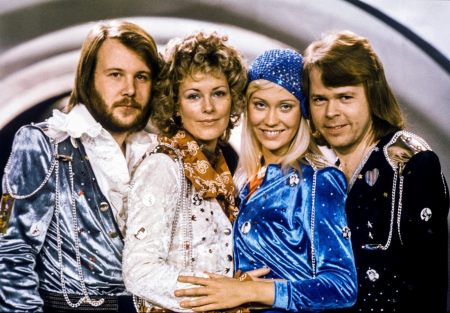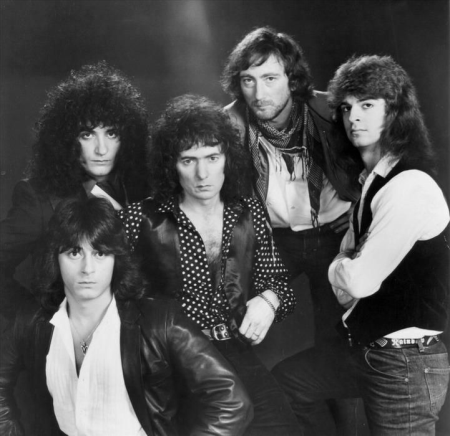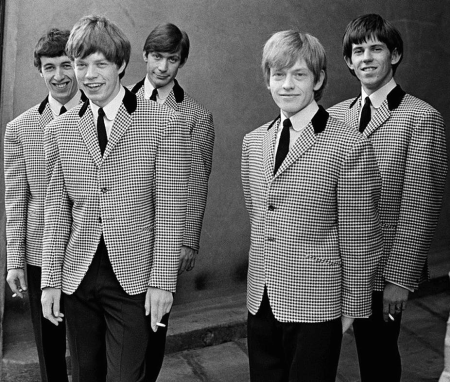Omega - 200 Years After The Last War & The Hall Of Floaters In The Sky (Remastered) (1974-75/2022)
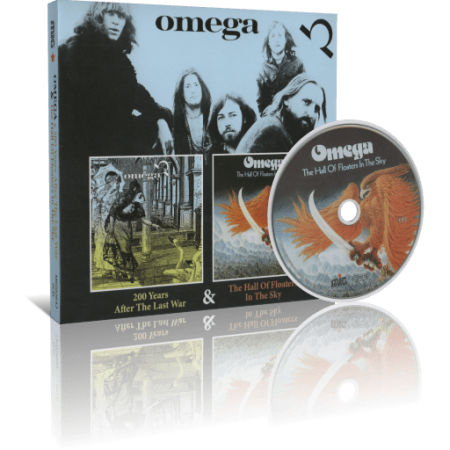
MP3 320 kbps / FLAC (tracks, cue, log, scans) | 1h 12 min | Prog Rock | 233 / 544 MB
The most successful Hungarian rock band in history, Omega was formed in 1962 in Budapest by a group of friends. The lineup changed several s during Omega's early years and there was no consistent music style to speak of. As with many other rock groups of the early '60s, the band's repertory largely consisted of songs by popular British bands of the period. Only in 1967, when they were joined by Gabor Presser (keyboards, vocals), did they began recording their own songs and issuing a few singles. Presser's mixture of rock with elements of jazz and folk proved to be a winning formula. In 1968, John Martin, the manager of the Spencer Davis Group, invited them for a tour in Great Britain, where they recorded the album Omega: Red Star from Hungary for the Decca label. Later that year, they issued their first Hungarian LP Trombitas Fredi es a Rettenetes Emberek (Trumpeter Freddy and the Terrible People); it became their first gold record. The band sealed their success with two subsequent LPs, 10,000 Lepes (10,000 Steps) (1969) and Ejszakai Orszagut (On the Highway at Night) (1970). Their 1969 song "Gyongyhaju lany" (The Girl with Pearls in Her Hair) became their first international hit and was later reworked by the Scorpions into "White Dove" in the mid-'90s.
In 1971, keyboardist Gabor Presser and drummer Jozsef Laux left the band to form another group, Locomotiv GT. Presser was a deeply felt loss since he authored most of Omega's compositions at the . Lyricist Anna Adamis followed her husband Laux to his new band. The breakup was later reflected in Omega's 1971 song "Hutlen Baratok" (Unfaithful Friends). When Laszlo Benko, who was the band's original keyboardist (and learned to play trumpet and flute), resumed his original position and Ferenc Debreceni became the new drummer, Omega reached its definitive lineup: Janos Kobor (vocals), Tamas Mihaly (bass, vocals), Ferenc Debreceni (drums), Gyorgy Molnar (guitars), and Laszlo Benko (keyboards, vocals). While with Presser, the band's sound tended to be somewhat psychedelic and fuzzy, but Benko's classically influenced keyboards and Molnar's guitar assumed a much greater focus under Benko's leadership.
Omega's fourth album, 200 evvel Az Utolso Haboru Utan (200 Years After the Last War) (1972), was not released due to censorship problems. However, the band added some songs from that forbidden album to Elo Omega, an LP recorded with some very basic equipment during a concert tour. The group became a frequent guest in East Germany and even recorded some songs in German. In 1973, producer Peter Hauke arranged a three-year contract for them with the West German label Bacillus. To expand their potential audience, Omega began to produce albums in two separate versions: English and Hungarian. Bning with Robber (1976) and its Hungarian counterpart, Idorablo, released a year later, the band shifted toward progressive rock, with lengthy instrumental interludes, sug organ solos, and various electronic "space sounds." More albums in a similar style followed: Skyrover (and its Hungarian version Csillagok utjan[1978]), Gammapolis/Gammapolisz (in separate English and Hungarian versions, 1979), and Working (1980) (released in Hungary as Az Arc[The Face][1981]). However, the band's '80s albums began to show obvious signs of creative stagnation. Soon after their 13th album, Babylon (1987), and a 25th anniversary concert, Omega disbanded.
The early '90s saw the resurgence of interest in Omega. All of their albums and even previously unreleased recordings were issued on CD. In 1994, the band reunited for a big concert at the Budapest Nepstadion with ex-Omega members Gabor Presser and Tamas Somlo, as well as Rudolf Schenker and Klaus Meine from the Scorpions perfog as guest stars. The show was tremendously successful despite the pouring rain and it was later released on two CDs as Omegakoncert Nepstadion 1994. Inspired by the enthusiastic reception, the musicians produced a new album in 1995, Trans and Dance, and its shortened English version Transcendent (1996). The record that marked a return to Omega's hard rock roots featured contributions from Gabor Presser and guitarist Tamas Szekeres. In 1998, Omega recorded another album, Egy eletre Szol. The same year, the bandmembers were honored with a Hungarian National Award. On September 4, 1999, Omega gave another big concert at the Nepstadion that was released on the double-CD Omega Koncert Nepstadion 1999. The group remained active in the 21st century, touring and recording occasionally, both in their traditional format and with an orchestra under the billing "Omega Rapsody." Keyboard player and co-founder Laszlo Benko died on November 19, 2020 at the age of 77. Bassist Tamas Mihaly passed away just a few days later on November 21, 2021 at the age of 73. Lead singer Janos Kobor died due to complications from the COVID-19 virus on December 6, 2021; he was 78.
200 Years After The Last War
1-1 Suite 19:24
1-2 Help To Find Me 7:45
1-3 200 Years After The Last War 4:58
1-4 You Don't Know 3:30
The Hall Of Floaters In The Sky
2-1 Movin' World 6:33
2-2 One Man Land 5:49
2-3 Magician 6:06
2-4 The Hall Of Floaters In The Sky 2:58
2-5 Never Feel Shame 8:44
2-6 20th Century Town Dweller 6:44
DOWNLOAD
uploadgig.com
https://uploadgig.com/file/download/69b4852ef80bEebe/U8KI4kfb_Omega_.rar
https://uploadgig.com/file/download/9c8AA2d6b2c1621E/U8KI4kfb_Omega3_.rar
rapidgator.net
https://rapidgator.net/file/fc686da5f4dabd0adb9563d601af016d/U8KI4kfb_Omega_.rar.html
https://rapidgator.net/file/b4ffef71615ee124a638c4ba683bf6cd/U8KI4kfb_Omega3_.rar.html
nitro.download
https://nitro.download/view/9630C3BFD335521/U8KI4kfb_Omega_.rar
https://nitro.download/view/07EB8749F7DD61A/U8KI4kfb_Omega3_.rar
